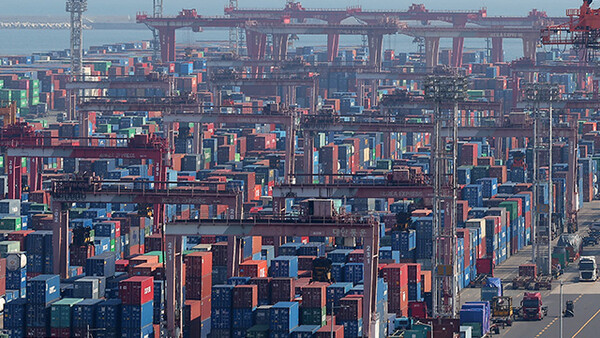KIET's Gloomy Forecast for South Korea's 2025 Economy
The Korea Institute for Industrial Economics and Trade (KIET) has unveiled its economic and industrial outlook for 2025, projecting a modest slowdown in South Korea's real gross domestic product (GDP) growth rate to 2.1% next year, slightly lower than this year's 2.2%.

KIET anticipates weaker growth in the first half of 2025 at 1.9%, compared to 2.2% in the second half. Despite this, the forecast is marginally higher than the International Monetary Fund (IMF)'s recent prediction of 2% for South Korea. KIET noted that while the global economy is expected to benefit from stabilized inflation and eased monetary policies, geopolitical uncertainties and financial market volatility due to changes in monetary policies will act as constraints on growth.
The outlook for South Korea's exports, a critical component of its economy, shows a mixed picture across different sectors. Among the 13 major industries, semiconductor exports are expected to rise by 8.5%, driven by improved consumer sentiment and advancements in the artificial intelligence (AI) industry. Other sectors such as information and communication devices (8.4%), steel (5.0%), biohealth (4.9%), shipbuilding (4.1%), and displays (2.5%) are also projected to see growth. However, exports of secondary batteries and refining are expected to decline by 6.7% and 7.5%, respectively. Additionally, the automobile sector is forecasted to decrease by 2.7%, and textiles by 1.9%. Despite these declines, the total export value is anticipated to exceed $700 billion for the first time.
KIET highlighted the potential impact of the universal tariff imposition policy of the current U.S. administration, which could lead to a significant decrease in exports to the U.S., particularly in the automobile sector. If the universal tariffs (10-20%) are implemented, South Korea's exports to the U.S. could decrease by 8.4-14%, amounting to approximately $5.5-9.3 billion. This could further reduce South Korea's economic growth rate next year by approximately 0.1-0.2 percentage points.
Private consumption and investment recovery are not expected to improve significantly. Private consumption is projected to increase by only 1.9% compared to this year, while construction investment is expected to decrease by 0.9%. The weak recovery in private consumption is attributed to the accumulated effects of high prices and high interest rates, despite increases in real income, interest rate cuts, and price stability. Additionally, construction investment is expected to decline as the accumulated poor leading indicators in the construction sector materialize.
Kwon Nam-hoon, president of KIET, stated, “Next year, the economic growth rate will slow down compared to this year,” adding, “We expect it to be a definitely challenging period.”






Comments